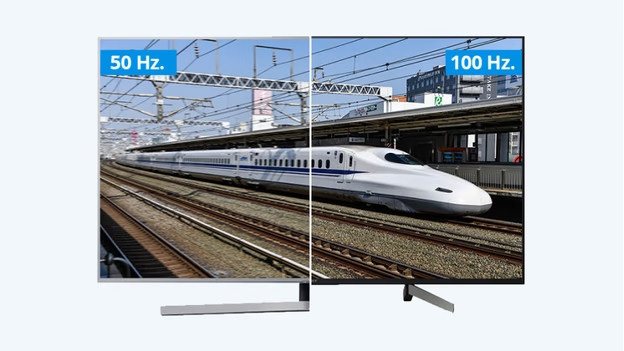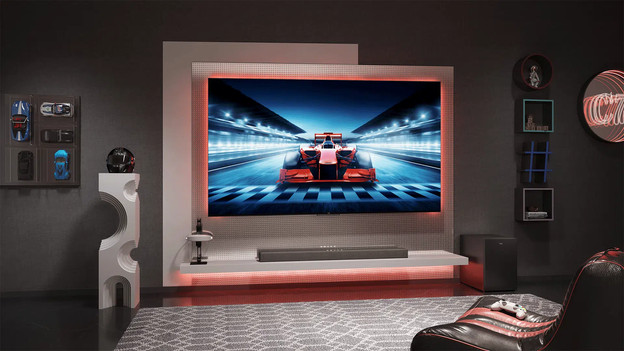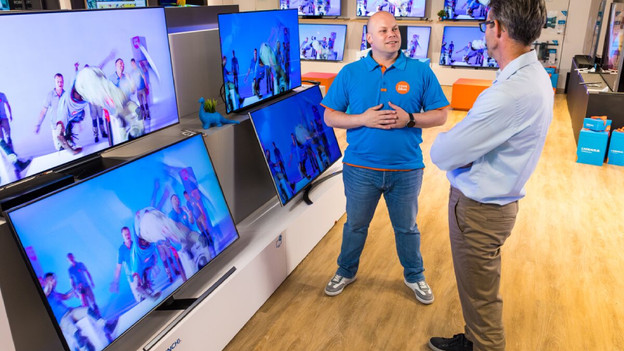
Written by Laurence
Edited on
14 November 2024
·
15:35
How many Hertz should my TV have?
When you're looking for a new television, it's important to look at the refresh rate. That's because the refresh rate determines how smooth your image is during fast actions. This value is expressed in 50, 100, or 144Hz. Do you often watch action movies? Go for a 100Hz TV. Do you want to game on your TV? A 144Hz TV only works with a powerful video card. Experience what number of Hertz is suitable for you in one of our stores.
What's Hertz?
Hertz is also called the refresh rate of a TV. This value indicates how many frames per second a television shows. Think of a frame as a picture. If you play a lot of pictures in a row, you create moving images. An image with more frames per second looks smoother.

Who is 50Hz suitable for?
50Hz is suitable for people that watch TV without fast action scenes, like news or talk shows. The image remains sharp and smooth for calm images. For gamers or sports enthousiasts, we recommend a higher refresh rate. This way, fast-moving images won't have any screen tearing.

Why 100Hz?
A 50Hz TV is able to show 50 frames per second. A 100Hz TV can show double the amount. When you're watching a talk show, you won't notice the difference. A 100Hz TV is especially suitable when you watch fast-moving images, like soccer matches and action movies. When you have a PlayStation 5 or Xbox, 100Hz is also suitable. Each quick action is displayed sharply.

144Hz for your gaming PC
A 144Hz TV refreshes your image 144 times per second. This provides razor-sharp images and smooth movements in 4K for PC gamers. Do you want to game in 4K and 144Hz on your TV? Check if your video card is powerful enough for this. For example, the NVIDIA RTX 3080, RTX 4080, or AMD RX 6800 XT video cards.

Visit the store
Do you want to see the difference between 50 and 100Hz for yourself? Visit us in one of our stores and see the difference on our advice wall with your own eyes. Our experts are happy to show you the difference and will give you personal advice. Click the button below for an overview of all the Coolblue stores.
Article by Laurence
Television Expert.
